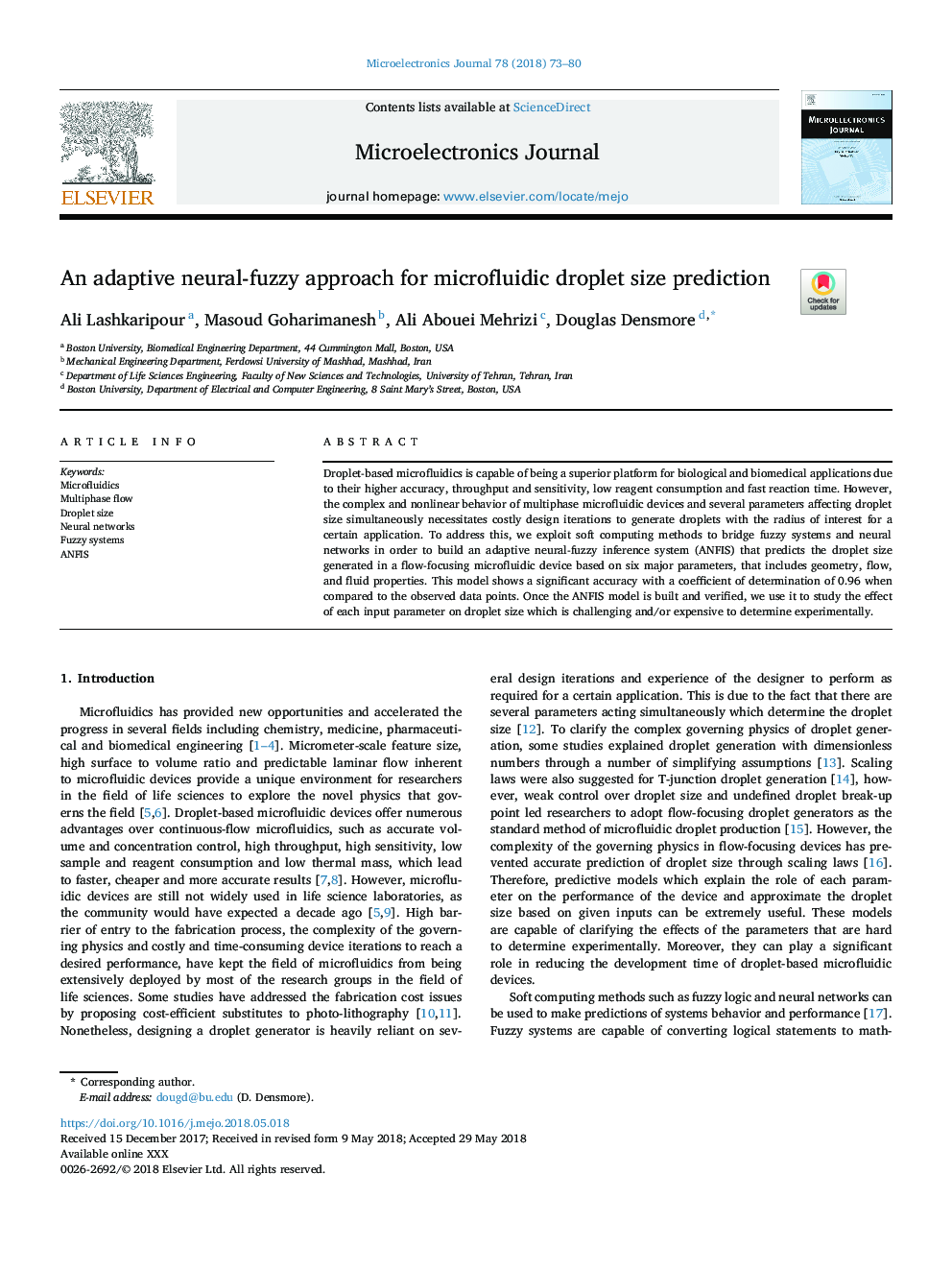| Article ID | Journal | Published Year | Pages | File Type |
|---|---|---|---|---|
| 6944863 | Microelectronics Journal | 2018 | 8 Pages |
Abstract
Droplet-based microfluidics is capable of being a superior platform for biological and biomedical applications due to their higher accuracy, throughput and sensitivity, low reagent consumption and fast reaction time. However, the complex and nonlinear behavior of multiphase microfluidic devices and several parameters affecting droplet size simultaneously necessitates costly design iterations to generate droplets with the radius of interest for a certain application. To address this, we exploit soft computing methods to bridge fuzzy systems and neural networks in order to build an adaptive neural-fuzzy inference system (ANFIS) that predicts the droplet size generated in a flow-focusing microfluidic device based on six major parameters, that includes geometry, flow, and fluid properties. This model shows a significant accuracy with a coefficient of determination of 0.96 when compared to the observed data points. Once the ANFIS model is built and verified, we use it to study the effect of each input parameter on droplet size which is challenging and/or expensive to determine experimentally.
Related Topics
Physical Sciences and Engineering
Computer Science
Hardware and Architecture
Authors
Ali Lashkaripour, Masoud Goharimanesh, Ali Abouei Mehrizi, Douglas Densmore,
